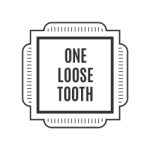Dental students often ask if they should complete a 1-year AEGD/GPR or enter the job market and supplement their education by taking a lot of continuing education during their first year or two as an associate. In general, I think it’s wise to complete a good AEGD or GPR if you can (disclosure, I did not attend an AEGD or GPR).
When it comes to private practice, it’s hard to find a mentor. The reality is that if you are being paid to work, your employer expects you to be a profitable hire. There are very few dentists who would invite you into their practice to learn and experiment on their patients.
Likewise, if you are being paid to be an associate, you are expected to be there. Taking a week off to take the endo course, another week to take Module 1 of the implant continuum, and another week to take Module 2 plus all the other supplemental CE the young doctor is trying to piece together is often unrealistic.
The most efficient way to accelerate your learning is via a good residency. The easiest way to find out which residency programs are good and which residency programs may not meet your expectations is to find out which D4s are going to a residency program, write their names and emails down, and contact them 6 months into their residencies to ask for some advice and get their thoughts about the program they’re attending. Most of the residents will be able to give you an honest opinion about their program 6 months in. From here, you should have a handful of residencies that will meet your expectations to at least consider applying to.



Add a comment